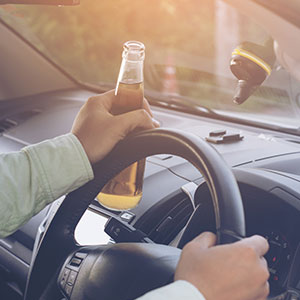
Background
If you are looking at this webpage it is probably because you or someone you care about has been arrested for Driving While Intoxicated in Texas. I want to begin by saying you (or your loved one) are not alone. Every year thousands of people like you have to deal with getting arrested for DWI. You may be surprised as to how many of your friends, neighbors, or loved ones have gone through exactly what you (or your loved one) are going through now. According to the Texas Department of Public Safety, there were 97,539 arrests for DWI in 2019 in Texas. In the same year, Nueces County saw 1,130 arrests for DWI.
First Steps
I want to begin by defining what DWI is and then providing you with some background information on how a DWI case works. I also invite you to explore my website and check out the resource page for some really useful information that will help you along the way. If you are ready to schedule your initial strategy session, give me a call at (361) 344-4811 to schedule a time to discuss your case.
In Texas, a person commits the offense of Driving While Intoxicated if the person operates a motor vehicle in public while intoxicated. A person is considered intoxicated if they have lost the normal use of their mental or physical faculties because of the introduction of alcohol or some other substance into their body or if they have an alcohol concentration of .08 or greater.
DWIs are different than other criminal charges because you are facing two different cases against you. You are facing the suspension of your driver's license and you are facing a criminal case for the crime of DWI. You only have 15 days from the date of your arrest to challenge the suspension of your license. That is why it is important to retain an attorney quickly so you do not miss that opportunity.
- Click here to learn more about the stages of a DWI case and how we work with our clients to defend them.
- Click here to learn more about challenging the suspension of your driver's license.
Analyze
Ira Z. Miller is Board Certified in criminal law, and will work directly with you to immediately identify the particulars of your case and the charges against you including analyzing the following:
- The investigating and arresting officer's reports
- Whether the police officer had a lawful reason to detain you.
- Whether the police officer complied with all Constitutional safeguards as required by law.
- Addressing any illegal search and seizure of your vehicle.
- Determining whether you properly submitted to a blood or breath alcohol test.
Next Steps
If you have been arrested for DWI and would like to discuss your case with us, call us at (361) 344-4811 to schedule an appointment.
For More Information
- How To Expunge A DWI Charge In Texas
- Top 5 Myths About DWI Charges In Texas – Debunked
- Click here if you are interested in learning more about How Texas handles first-time DWI offenses: what to expect.
- Click here if you are interested in learning more about what you can expect in defending a DWI case.
- Click here to learn more about challenging the suspension of your driver's license.
- Click here to learn about the difference between DWI and DUI in Texas.
- Click here to learn if you should voluntarily provide a breath or blood test when arrested for DWI.
- Click here to learn what happens when a police officer fails to read the Miranda rights when someone is arrested for DWI in Texas.
Note: Free Strategy Session for Criminal Law!
Call Us To Schedule Your Initial
Strategy Session Today!
(361) 344-4811